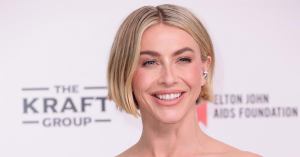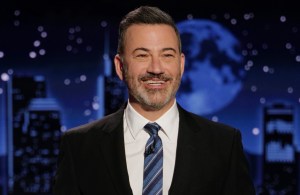Angelina Jolie has dedicated herself to a number of causes, and one of her latest efforts is exposing racism in the medical field. The Oscar winner discussed the topic during a recent conversation with medical student Malone Mukwende for Time, where she revealed that she has experienced the issue firsthand within her own family.
“I have children from different backgrounds, and I know when there was a rash that everybody got, it looked drastically different depending on their skin color,” Jolie shared. She and ex-husband Brad Pitt share Maddox, 19, Pax, 17, Zahara, 16, Shiloh, 15, and 12-year-old twins Knox and Vivienne. “Whenever I looked at medical charts, the reference point was always white skin,” Jolie continued. “Recently my daughter Zahara, whom I adopted from Ethiopia, had surgery, and afterward a nurse told me to call them if her skin ‘turned pink.’”
Videos by PopCulture.com
“That’s the kind of thing I started to notice very early on,” Mukwende replied. “Almost the entirety of medicine is taught in that way. There’s a language and a culture that exists in the medical profession, because it’s been done for so many years and because we are still doing it so many years later it doesn’t seem like it’s a problem. However, like you’ve just illustrated, that’s a very problematic statement for some groups of the population because it’s just not going to happen in that way and if you’re unaware you probably won’t call the doctor.”
Mukwende is a student in London, and after noticing racial biases in his field, he and staff members at his university began to collect photos and descriptions of different conditions on darker skin, which they compiled into a handbook called Mind the Gap. Mukwende explained to Jolie that while in school, he noticed a “gap in our teaching.”
“If we learned about a particular type of rash or disease that manifests on skin, it would always have white skin as the reference,” he said. “I would ask ‘What does this look like on other skin tones?’ just for my own learning. Often people told me that they didn’t know. I decided that something needed to be done.”
Mukwende’s work also extends to an online platform, Hutano, which translates to “health” in the 21-year-old’s native language, Shona. When Jolie asked what he hopes the platform will achieve, Mukwende shared that he and his collaborators “want people who are living with these conditions to have a platform to be seen and empower their health care literacy.”
“We want to give people the platform to be able to discuss these things,” he said after sharing an example of someone searching for ways to manage eczema. “We need to start empowering the individual, and that, I hope, will start to reduce some of the health care disparities that exist.








